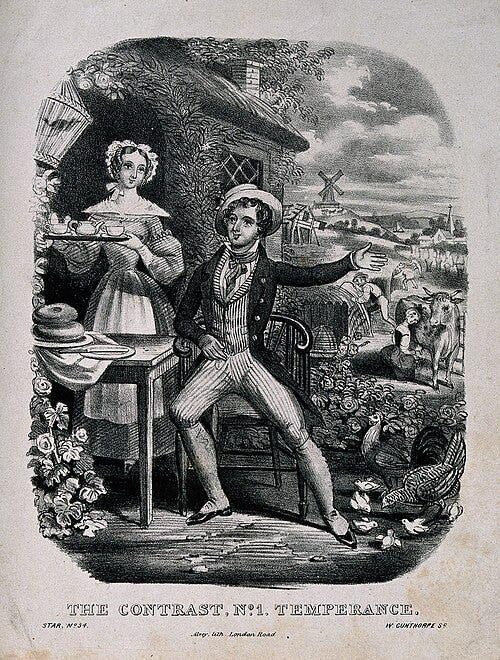Unveiling Vice and Virtue: Moral Reform in 19th-Century America
In the early 19th century, American society grappled with profound moral and social challenges, from rampant intemperance to unchecked licentiousness. Published in The Liberator on July 26, 1834, this historic article captures the fervor of the moral reform movement, highlighting the urgent calls to address societal vices through the lens of publications like McDowall’s Journal, the tragic downfall of a once-respected man to alcoholism, and the enduring influence of parental example.1 These excerpts reflect a nation wrestling with its values, seeking to curb moral decay while emphasizing the transformative power of virtuous conduct. The following is a full transcript of this compelling piece, offering a window into the moral discourse of the time.
MORAL.
MORAL REFORM.
We say that Mr. McDowall is doing just the work, which ought to be done, and must be done, in order to check that flood of licentiousness, which is sweeping over our whole country; and those who seek to throw obstacles in his way, or cry out ‘shame,’ ‘indiscretion,’ ‘indelicacy,’ ought to be ashamed of themselves. The very reasons which they urge against ‘McDowall’s Journal,’ are among the very reasons which infidels urge against the Bible; and on the same ground, that a New-York Grand Jury ‘present’ the ‘Journal’ as a ‘nuisance,’ and the New-York Observer and Boston Recorder give their approbation of the ‘presentment,’ infidels urge that the Bible is a ‘nuisance’ and ought to be suppressed. The Bible condemns adultery, fornication, whoredom, and all kinds of lasciviousness, and calls them all by their right names; therefore, infidels say, it is an ‘obscene book,’ ‘presenting such odious and revolting details as are offensive to taste, and inflame the passions of the young;’ while, at the same time, these very infidels are privately selling books and prints, written and engraved for the very purpose of encouraging universal licentiousness!—New-England Telegraph.
The Drunkard’s Funeral.—Yesterday I attended a funeral at the poor house. It was the drunkard’s funeral. I have seen his whole course. I remembered when he was intelligent, respectable and lovely. His tall stature, beautiful mien, noble intellect, inspired respect. He commenced business as a merchant; was soon commissioned as a justice of the peace; was elected a member of the legislature, and received a military commission. Honors thickened, but there was ‘a worm at the root.’ He drank secretly. I remember the first time he appeared disguised; he was then unsuspected. The downward course was slow but sure. Years passed on, and his family were obliged to forsake him. He became a street drunkard. I have seen him pass along, the derision of boys. I have seen him for years in the poorhouse, palsied and helpless. I saw him on his death-bed. He lingered long, as if death was ashamed to take him. I heard the bell announce his death; it was at the very moment when the assembly were retiring from the temperance meeting, on the 2 5th of February. I officiated at his funeral. One solitary mourner only attended. We laid him low in an obscure part of the grave-yard. Thus lived—thus died—thus was buried T— B—, Esq. a victim of intemperance! having occasioned the town an expense of $1200 for his support!!—Temperance Inteligencer.
Influence of Parents.—Our religion, politics, language, morals, and even gestures, are mostly derived from the parental type. How careful, then, our fathers and mothers ought to be to set us good copies! They ought to know that they are sowing the seeds of good or evil to unknown generations. All that their own children see, hear, feel, or enjoy, it will be the lot of future children to undergo and partake of. Their words, precepts, and actions—their examples, as masters, citizens, parents, husbands and wives, will be the law and precedent regulating the demeanor of future masters, citizens, husbands, parents and wives. As heads of families, each is the founder and governor of one of the little federative states of which the body politic is composed; and it shall be on their primary training and rule, whether they shall be the authors of new sources of disorder and misery, or joy and benefit to the community.
“Moral,” The Liberator (Boston, Mass.), 26 July 1834, Chronicling America: Historic American Newspapers, Library of Congress, accessed June 26, 2025, https://chroniclingamerica.loc.gov/lccn/sn84031524/1834-07-26/ed-1/seq-4/.




